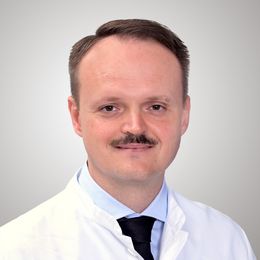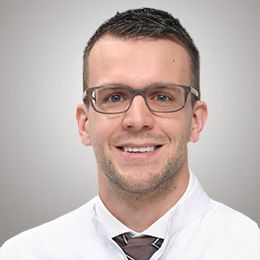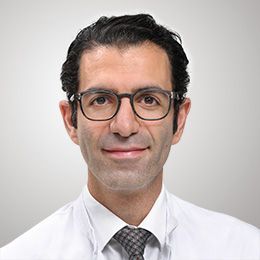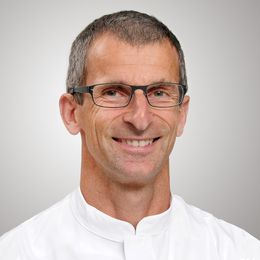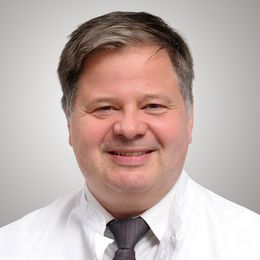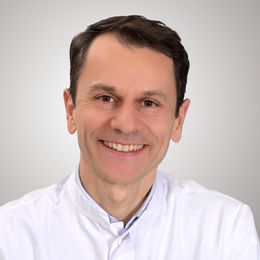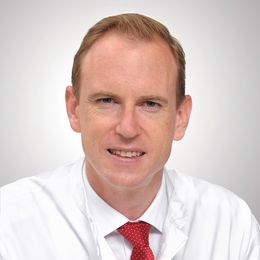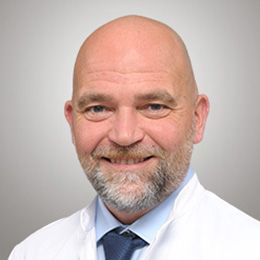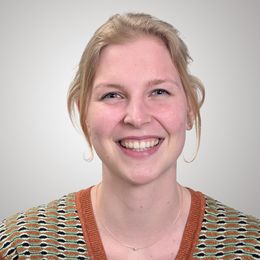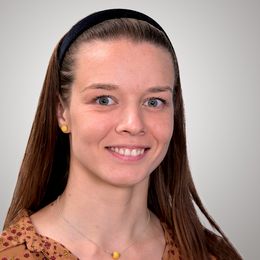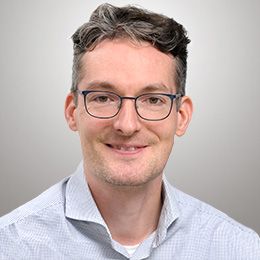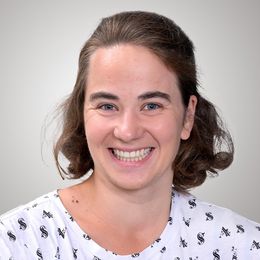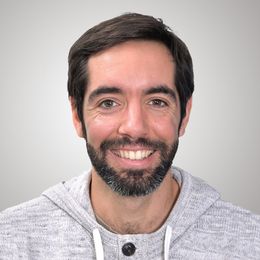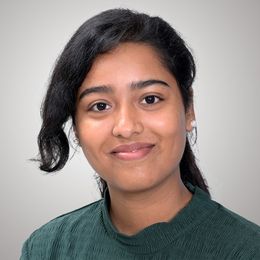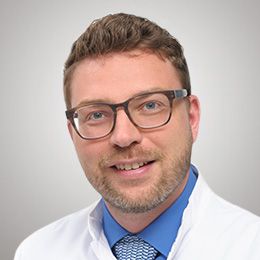
Highly specialized treatment for bone and soft-tissue tumors
Balgrist belongs to the Zurich Sarcoma Center
Bone and soft-tissue tumors are extremely complex diseases that present a particular challenge because of their rarity. In the Zurich Sarcoma Center, which is unique in Switzerland, we care for patients thought to have a tumor in the musculoskeletal system – with comprehensive interdisciplinary treatment.
Balgrist – the only orthopedic hospital for tumor surgery in Zurich
![[Translate to Englisch:] Interdisziplinäre Behandlung der Tumorpatienten [Translate to Englisch:] Interdisziplinäre Behandlung der Tumorpatienten im Balgrist](/fileadmin/user_upload/Fachbereiche/Orthopaedie/Tumore/Dateien_Sarkomzentrum_2018/Balgrist-interdisziplinaere-Sprechstunde.jpg)
Interdisciplinary treatment for tumor patients.
The treatment of malignant bone and soft-tissue tumors is considered to be highly specialized medicine (HSM). For this reason, the necessary surgical procedures may be carried out at only a few hospitals in Switzerland. Balgrist University Hospital is the only orthopedic hospital with service level agreement for the treatment of bone cancers from the Zurich Cantonal Department of Health.
Appointments
We are happy to arrange appointments for Tuesday, Thursday and Friday.
+41 44 386 30 95
+41 44 386 16 66
Email
You can reach us as follows:
Monday to Friday
8 am to 12 noon
1 pm to 5 pm
Certified Sarcoma Center
- The University Sarcoma Center in Zurich is the only center of excellence in Switzerland that is certified by the German Cancer Society (DKG) in accordance with international guidelines.
- Interdisciplinary cooperation of Tumor Surgery at Balgrist with Oncology and Radio-oncology at the Zurich University Hospital (USZ) provides highly skilled and comprehensive treatment for the patients concerned. Balgrist also functions as a surgical partner to the Zurich University Children’s Hospital.
- The Zurich Sarcoma Center works closely with many national and international hospitals and universities, enabling our experts to access a worldwide network of specialists and discuss complex treatment strategies.
What are bone and soft-tissue tumors?
As with the internal organs, tumors may develop in bone and soft tissues. They are most commonly found in the arms, legs and pelvis, and are often located near to a joint. Bone and soft-tissue tumors are classified as benign and malignant (cancer). Malignant tumors carry the risk of spreading to other parts of the body and forming new lesions, especially in the small blood vessels in the lungs.
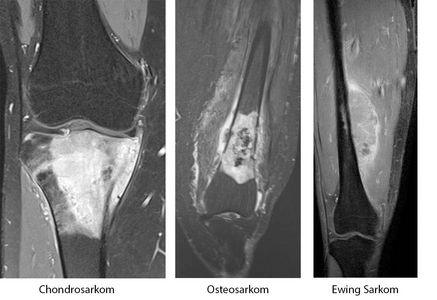
What is a sarcoma?
Sarcoma is the technical term for malignant tumors (cancers) that arise directly in bone or soft tissues (fatty tissue, muscles, connective tissue, and nerve tissue). If cancer spreads to the bones from other organs (prostate, breast, lungs, thyroid gland, etc.), we call these lesions secondaries or metastases.
What sort of tumors are there?
There are many different types of bone and soft-tissue tumor. The three most common cancers in bone are osteosarcomas, chondrosarcomas and Ewing’s sarcomas. Liposarcoma (in fatty tissue) is the most common malignant tumor found in soft tissue. Each type of tumor requires individual treatment.
What causes bone and soft-tissue cancer?
Compared with other types of cancer, bone and soft-tissue cancers are very rare. No clear cause has yet been discovered: lifestyle and diet in particular do not seem to affect their development.
How are they diagnosed?
How are bone and soft-tissue tumors discovered?
In most cases, pain or a palpable lump brings the patient to their general practitioner or an orthopedic surgeon. X-rays or MRI scans are the best way of showing changes in the bones or growths in the tissues. Tumors are often incidental findings, for example seen on an X-ray taken after an accident.
What investigations are necessary?
Whenever a bone or soft-tissue tumor is suspected, our tumor team takes over the further diagnostic investigation and imaging. We get referrals from GPs and specialists throughout Switzerland. Naturally, patients can also contact us directly to investigate any unexplained findings. We invite patients to an appointment in our outpatient clinic. We often need to take a tissue specimen (a biopsy) to confirm the diagnosis.
What is a biopsy?
A biopsy consists of taking a small piece of tissue from the tumor and examining it under the microscope. The biopsy tells us what type of tumor is present and how aggressively it is growing. At Balgrist University Hospital, we perform all biopsies as gently as possible, using minimally invasive techniques. A fine needle is inserted into the tumor under CT or ultrasound guidance. This procedure can be done as an outpatient and our anesthetists make sure that it is as comfortable as possible for the patients.
What operations are carried out on bone and soft-tissue tumors?
The top priority is to remove the tumor completely. Thanks to huge surgical advances, only exceptional cases now need an amputation. Our aim is to restore the function of the affected arm or leg as much as possible. Tumor surgery is a team effort by cancer and joint specialists, so that our patients benefit from all the know-how available in the orthopedic hospital.
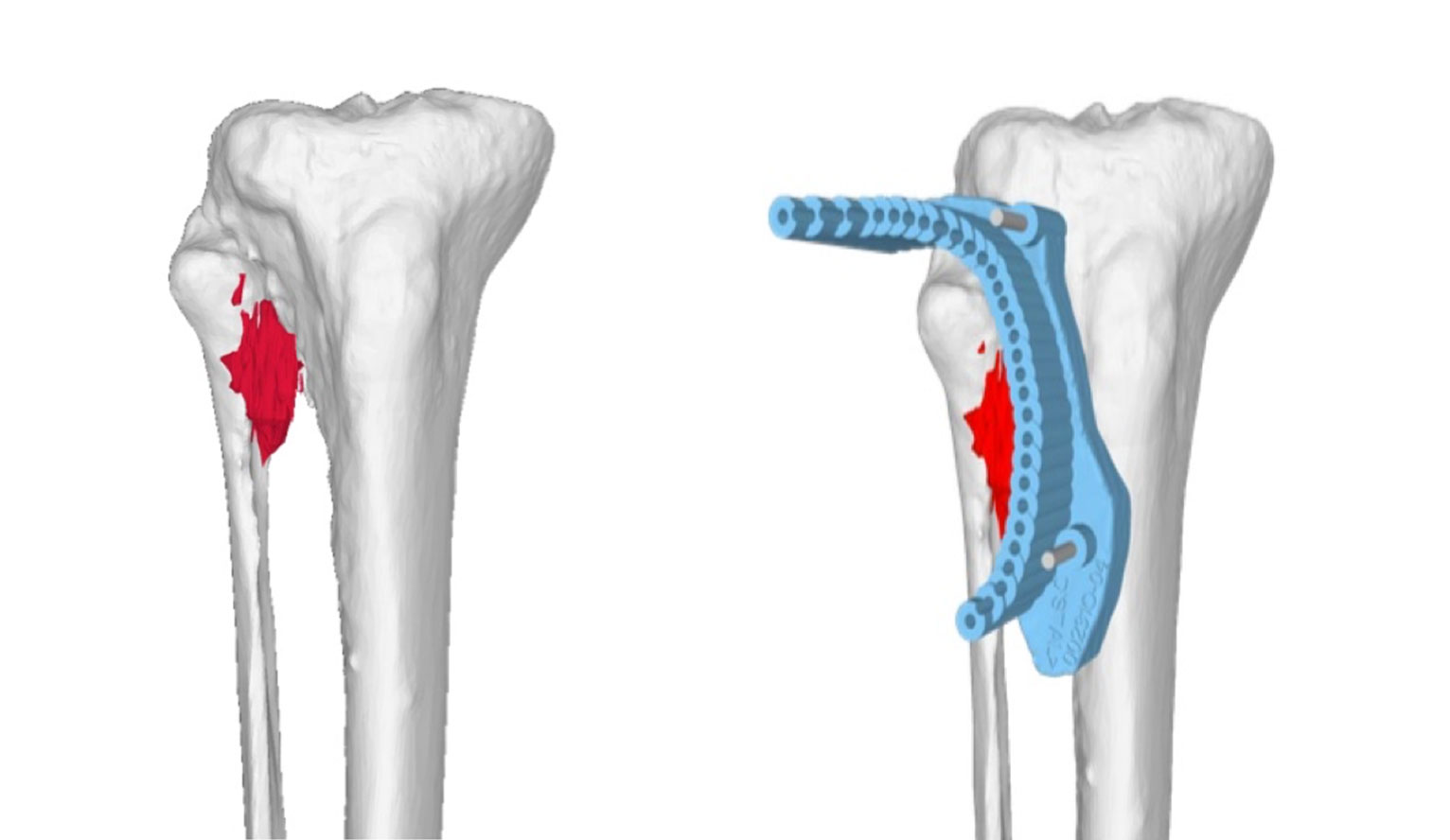
Planning the tumor resection
Balgrist is the only hospital in Switzerland where specialists can establish a 3D model of the tumor and use the computer to plan its removal to the millimeter. During the operation, specially made templates from the 3D printer are used to convert the planning precisely into surgical reality. Before the operation, we have a personal discussion with the patient to explain the various steps in the surgical procedure and answer any questions they may have.
How can you replace the bone that has been removed?
After the complete resection of a tumor, a defect is often left in the bone. To preserve the function of the limb as much as possible, team leaders and the senior consultants look at the possibility of joint replacement: if the cancer also involves the joint it is possible to use a special prothesis. Balgrist University Hospital has internationally renowned expertise in replacement joints. If the cancer does not affect the joint, we can use bone from a donor (an allograft).
How can you replace soft tissues?
In rare cases, the cancer grows around important soft-tissue structures such as blood vessels and nerves, which also have to be removed at the time of operation. Our senior consultant in hand and nerve surgery has many years’ in-depth experience in suturing blood vessels and nerves. Short sections of nerve can be replaced with a cutaneous nerve from the lower leg; arteries can be ‘bridged’ with a vein graft. In Dr. Dominik Kaiser, the tumor team has an expert in soft-tissue reconstruction. Such surgical procedures are necessary when the removal of a large tumor makes to impossible to close the skin with sutures. In this situation, the tissue is covered with a skin graft or a muscle flap. And there is always the possibility of cooperating with other surgical disciplines.
Holistic treatment
The diagnosis and treatment of a tumor is very stressful for patients and their relatives. Our specialists discuss matters thoroughly and take enough time to address any questions or fears that the patient may have. In addition to the medical aspects, patients often face considerable organisational challenges at the workplace or during the hospital stay. Nicole Züger of our social services department offers support with expert advice and great understanding. If need be, we can easily call on specialists from the Zurich Cancer League when the patient is suffering from mental stress (psycho-oncology).
Treatment
The most important step in treatment is correct surgical removal of the tumor. Careful surgery usually suffices for benign tumors and basically no further treatment is needed. Patients with malignant tumors may require additional chemotherapy or radiotherapy after the surgery.
Follow-up
Once treatment has finished, patients with cancer are followed up regularly. Patients appreciate the follow-up provided in the tumor team outpatient clinic. It means that they are always seen by the same person and can build up a trusting relationship. There is no unpleasant waiting time, as the radiological examinations are followed directly by review and discussion in the clinic. Patients who have to travel long distances, for example from the cantons of Ticino or Graubünden, are also happy make the journey to Balgrist for follow-up.
Tumor Team
Interdisciplinary tumor surgery specialists
Interdisciplinary outpatient clinic at the Sarcoma Center Zurich
The treatment of sarcomas requires close cooperation between various specialists. Every week specialists from Balgrist University Hospital, the Zurich University Hospital, and the Zurich University Children’s Hospital hold a sarcoma board meeting to plan optimal treatment. Balgrist University Hospital heads the sarcoma board together with the Department of Oncology at Zurich University Hospital, and is responsible for musculoskeletal tumors.
So that patients can benefit directly from the close cooperation between the different specialties, we hold interdisciplinary outpatient clinics. During consultations, the specialists discuss the therapeutic options with the patient: surgery, radiotherapy, and medication.
- Surgery
- Radiotherapy
- Medication
Please contact us if you would like more information.
Contact
Dr. Dr. Christian Britschgi, Dr. Daniel Müller (Co-Lead)
Dr. Lorenz Bankel, Dr. Dominik Kaiser (Coordinators)
Dr. Michelle Brown (Radio-Oncology USZ)
Dr. Tamara Rordorf (Oncology USZ)
Secretariat
+41 44 386 30 95
EMail
Research
An extensive infrastructure and optimal resources at Balgrist Campus are available for the Sarcoma Center to carry out research on musculoskeletal sarcomas.
- Swiss Center for Muskuloskeletal Biobanking (SCMB)
The SCMB is a national reference center for the collection, storage, and analysis of blood samples and tissue specimens. - Unit for Clinical and Applied Resarch (UCAR)
UCAR identifies diagnostic and treatment methods that are still unsatisfactory today. Working closely with research institutes, they develop solutions for improvement. - Sarkomforschung
New cancer cells are isolated from the blood of affected patients, in order to quantify the response to treatment rapidly and more accurately.
Liquid Biopsy
Networking
National and international networking
As bone and soft-tissue tumors are rare diseases, continual information exchange with other cancer specialists is extremely important. The Tumor Team at Balgrist University Hospital has close links with other hospitals at home and abroad. On the initiative of Balgrist University Hospital, university orthopedic departments throughout Switzerland have agreed to cooperate in the treatment of bone and soft-tissue tumors.
In addition, the Balgrist Tumor Team works closely with the internationally renowned university hospitals in Pisa (Prof. Capanna), Florence (adult patients: Prof. Campanacci; children: Dr. Beltrami), Paris (Prof. Masquelet) and the Memorial Sloan Kettering Cancer Center in New York (Prof. Healey).


